
Corruption of political parties stirs ire of the public against democracy – Interview with Prof. Kurt Weyland – By Abhish K. Bose
Professor Kurt Weyland, is Mike Hogg professor of Liberal Arts and Government at the University of Texas. Professor Weyland’s research interests focus on democratization and authoritarian rules, on social policy and policy diffusion, and populism in Latin America and Europe. He is co – editor of the forthcoming book When Democracy Trumps Populism: European and Latin American Lessons for the United States (Cambridge University Press, co- edited with Raúl Madrid). His latest book, Making Waves: Democratic Contention in Europe and Latin America Since the Revolutions of 1848 (Cambridge University Press, 2014), won the Best Book Award in the Comparative Democratisation Section from the American Political Science Association in 2015.
Two of his other books, Bounded Rationality and Policy Diffusion: Social Sector Reform in Latin America (Princeton University Press, 2007), and The Politics of Market Reform in Fragile Democracies: Argentina, Brazil, Peru, and Venezuela (Princeton University Press, 2002) were runners-up for the Robert W. Hamilton book award at UT Austin in 2008 and 2004, respectively. He has co-edited two volumes and written several book chapters, as well as numerous articles that have appeared in journals including World Politics, Comparative Politics, Comparative Political Studies, Latin American Research Review, International Studies Quarterly, Journal of Democracy, Foreign Affairs and Political Research Quarterly.
Weyland previously taught at Vanderbilt University and was a fellow at the Woodrow Wilson Center from 1999 to 2000, and a Visiting Fellow at the Kellogg Institute for International Studies from 2004 to 2005. He served as associate editor of the Latin American Research Review from 2001 to 2004. In an interview with Asian Lite’s Abhish K. Bose, he discusses the future of democracy across the world and the changing facets of the democratic experiment.
ABHISH K. BOSE: Though democracies perished at the hands of military backed autocrats in the form of fascism or Communism in the past, in the latest version democracies are endangered by their elected leaders. How are we to make sense of this trend in our times?
Prof Weyland: After the end of the Cold War, Western democracy promotion has de-legitimated military coups, which have therefore become significantly less frequent. Anti-democratic actors therefore feel compelled to employ formally democratic means to achieve their nefarious goals. One emblematic case is Hugo Chavez, who tried to oust a democratically elected president in a bloody coup in 1992, yet failed.

Learning from this failure, he went the electoral route, mobilized mass support as an outsider, won election in 1998, and used his presidential powers to suffocate democracy and install a competitive- authoritarian regime. Thus, democratically elected rulers can use their formal legitimacy to undermine and destroy democracy from the inside. Because early steps are often formally legal and because the descent into authoritarianism proceeds in a slow and gradual fashion, domestic opposition forces and international democracy promoters often face great difficulty to stop this undemocratic process. It is unclear when they should act, and how; and when they finally do act, it can be too late.
ABHISH K. BOSE: Many elected governments are imposing unpopular decisions over their people without declaring state of emergency, or staging a coup, or suspending the constitution, or imposing military law. However, many of these regimes implements hugely unpopular and anti-people policies over the people. What are the factors that enable them do so without having to pay any electoral costs for the same?
Prof Weyland: When the citizenry faces a severe crisis or apparent emergency, democratically elected governments can impose drastic, painful countermeasures. For instance, Peru’s Alberto Fujimori decreed a very harsh and costly adjustment program when his country suffered from massive hyperinflation – and a majority of people accepted this decision, hoping that it would avert a total economic collapse. In my view, however, this only works when the situation is really dire. Whereas governments have some capacity to exaggerate problems and “frame” them as serious crises, my research suggests that these appeals only have broad resonance when a country does, in fact, suffer from real problems.
Outside those situations, some leaders tend to avoid costly, painful measures, however. After all, their pressure on democracy rests on their mass popularity – which they do not want to endanger by taking measures that hurt a majority of people. Consequently, problems often go unaddressed; e.g., Venezuela’s Chavez did virtually nothing to combat an enormous increase in common crime. What a number of these leaders do, however, impose costly measures on minority or marginalized groupings.
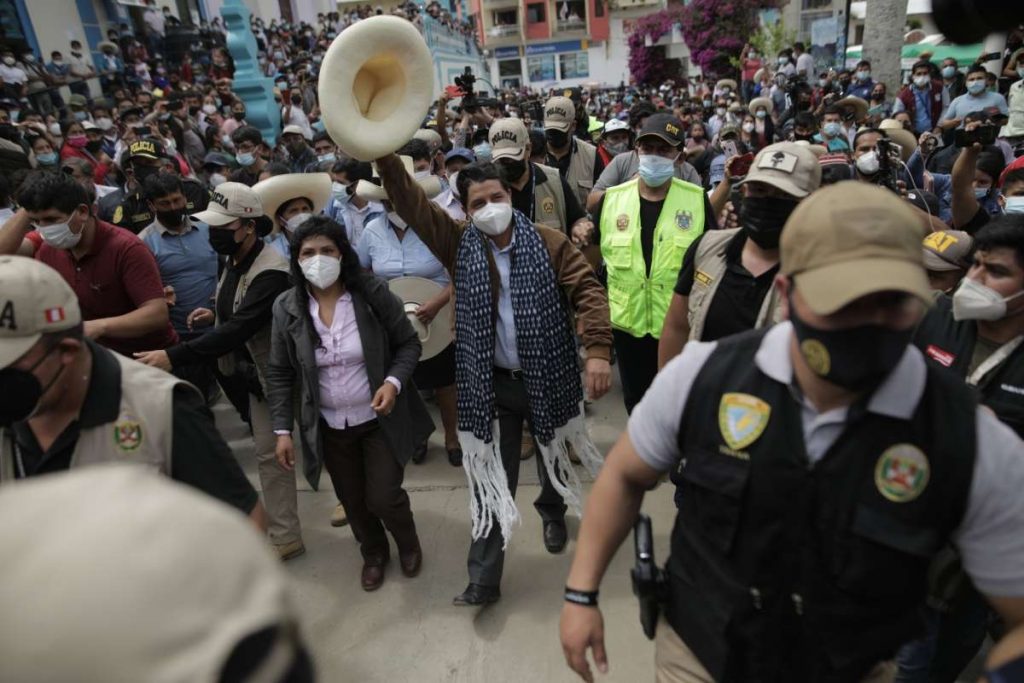
ABHISH K. BOSE: Such regimes co-opt the judiciary, the corporate sector, the media and the intelligentsia. They also show pronounced intolerance to dissent as well as neutralise the opposition abusing the instruments of the State? Invasive technology is employed to keep potential dissenters under surveillance. People’s welfare suffers in the process. While popular resistance succeeds here and there, they prove inadequate to defend true democracy. Does this denote a state proximate to full-blown fascism, or do you believe that this eventuality can be averted? What, if any, could be a programme of action for citizens feasible in such a context?
Prof Weyland : Contemporary efforts to undermine and asphyxiate democracy are designed to concentrate power and entrench effective political hegemony while leaving the formal institutions of democracy largely intact – so as not to draw strong pressures from Western democracy promoters. Consequently, the authoritarian regimes that emerge as a result of democracy’s suffocation are far distant from fascism and even from the harsh autocratic dictatorships of earlier decades. The new authoritarian regimes employ limited violence, and in a very targeted way – a huge difference from the mass terror of fascism (and communism) and from the old autocracies.
Fortunately, the torture that thousands of people suffered under the Latin American military dictatorships of the 1960s to 1980s has become rare, not to speak of forced disappearances. The opposition faces harassment and limitations, but not the brutal repression of the past. The media face restrictions and the government tries to monopolize the mass media such as TV; but newspapers can often publish criticism against the government: After all, newspaper readers are usually a (privileged) minority of the population, so that undemocratic governments that have plurality or majority support need not worry about the comparatively few people who are eager to let off steam. Nowadays, therefore, there is zero risk of a revival of fascism, and low risk of a descent into a true dictatorship.
ABHISH K. BOSE : Another worrisome trend in contemporary de facto autocracies is the abuse of sedition laws to curtail freedom of the expression and thought. They are invoked mostly against the intelligentsia and human rights activists? The courts do not play a proactive role on behalf of citizens, despite expressing occasional unease about the abuse of these provisions. Do you expect the internal intellectual elite addressing this issue, given that their national counterparts are too vulnerable and unable to do so?
Prof Weyland : International intellectual elites often try to help their counterparts in countries that suffer from democracy-suffocating or oppressive governments, but their leverage is limited, and their impact therefore often low. Offending governments invoke the principle of national sovereignty to brand external pressures as illegitimate foreign interference; in this way, they can strengthen their mass support and isolate domestic intellectuals as lackeys of foreign forces or 5th columns – as Hungary’s Viktor Orban has done by using George Soros as one of his main targets of attack. Populist leaders, in particular, claim to represent the common people & “the little man;” they can appeal to domestic resentments against the privileged, trans-nationalized elite – which therefore has limited effective influence. Foreign forces often lack leverage as well, as the EU’s failure to forestall Hungary’s suffocation of democracy shows.
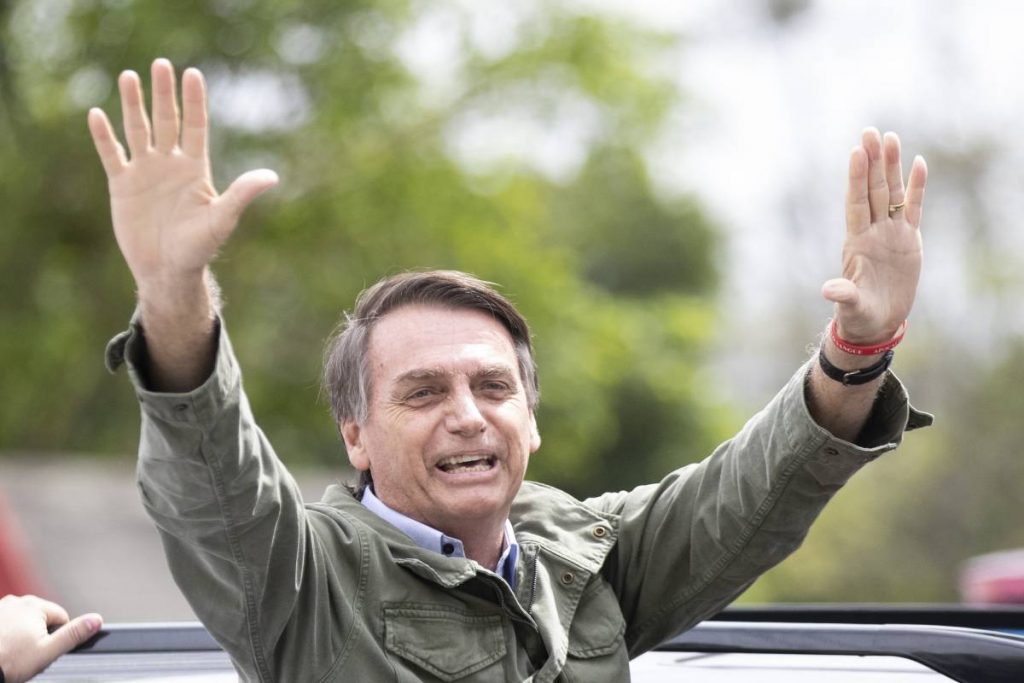
ABHISH K. BOSE : The current elected autocracies are echoing the debate initiated by the cultural theorist Stuart Hall on ‘ authoritarian populism’ which alludes to the use of a political ideology which believes in cynicism towards human rights, hostility to the state, opposition towards immigration and an enthusiasm for a strong defence and foreign policy. Do you agree with Hall’s analysis? What are the factors that make ‘authoritarianism’ popular in our times?
Prof Weyland: I must admit that I don’t know Hall’s analysis, but in its focus on rightwing populism, it sounds correct. Thus, there has been a heterogeneous set of culturally reactionary, exclusionary populists who have sought to undermine democracy in a variety of countries, especially Brazil (Bolsonaro), the US (Trump), Hungary (Orban), Poland (Kaczynski) and Turkey (Erdogan). Interestingly, however, Bolsonaro and Trump failed with their nefarious efforts by losing re-election, and the battle over democracy is still ongoing and undecided in India and Poland. Only in Hungary and Turkey have rightwing populists succeeded in smothering democracy.
What Hall’s argument seems to leave out, however, is that there has also been a set of leftwing populists who – from a different political-ideological orientation – have pursued the same goal of suffocating democracy as well. The prototype is Venezuela’s Hugo Chavez, and he found imitators in Bolivia (Evo Morales) and Ecuador (Rafael Correa), as well as in Nicaragua, namely non-populist Daniel Ortega. Strikingly, these populist leaders did greater damage to democracy: Chavez and Ortega installed lasting autocratic regimes, and Correa & Morales pushed their countries into competitive authoritarianism as well – but this process was soon reverted in both countries. Thus, while rightwing populists with their harsh, acrimonious rhetoric and their exclusionary proposals look like the greater danger to democracy, leftwing populists have, in fact, done at least as much damage to democracy.
ABHISH K. BOSE: Apprehensions are widespread that democracy is on the decline globally. Even legitimate democratic processes and provisions are used to stifle democracy. What is the role that the corruption of political parties and institutions plays in this process? Are elected dictatorships popular because the people are cynical of party-based democratic processes?
Prof Weyland: Yes, this is a very important contributing factor. Many “established” parties and governments, especially in developing countries, are deeply corrupt, and this malfeasance draws increasing popular ire. Moreover, they are often beholden to economic business and privileged societal sectors, who receive “special treatment” that many common people regard as corrupt as well. Given the growth of investigative journalism, these serious problems are more and more revealed to the public, triggering corruption scandals that can shake and shatter “established” parties and governments; for instance, the corruption networks arranged and run by Brazil’s leftwing Workers’ party seriously discredited this political force, and the systematic investigation of this problem paved the way for rightwing populist Jair Bolsonaro to win the presidency in2018.
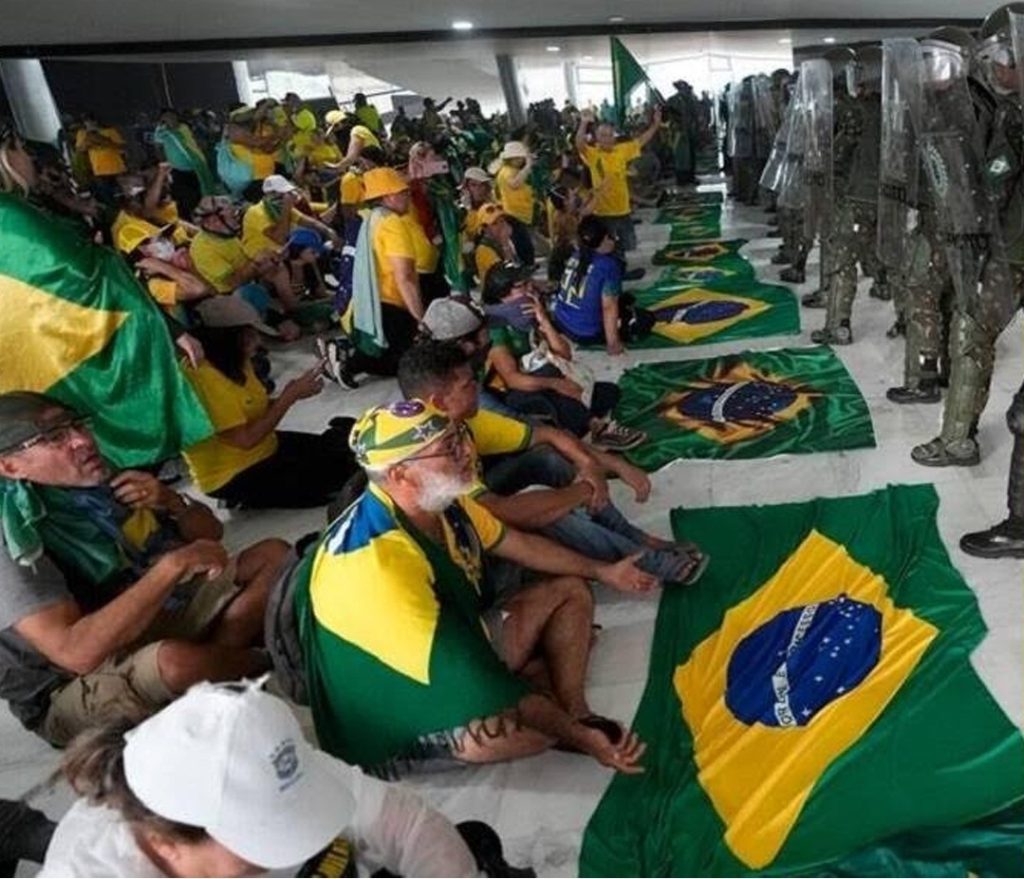
The “tragic” paradox is, therefore, that corruption scandals are necessary steps towards the clean-up of governance: where corruption is entrenched, as in many developing countries, only its relevation, investigation, and prosecution will finally bring urgently needed improvement. But in the short run, these corruption scandals can play into the hands of populist leaders, who promise to spearhead a massive clean-up, but who soon use their own increasingly hegemonic power and the corresponding lack of accountability to engage in corruption themselves – which is often worse than before! This was the story of Hugo Chavez in Venezuela, who rode to power in part on anti-corruption slogans, and who then allowed his cronies to engage in the most massive corruption that his country had ever seen: During the global commodities boom, billions & billions of dollars were stolen in this oil- exporting country.
ABHISH K. BOSE: It was expected that the sovereignty of nation states will be diluted in the wake of the emergence of the global order. Almost the reverse has happened. The global order is weakening and national sentiments are becoming stronger in most parts of the world. How are we to make sense of this seeming conundrum? Do you believe that globalisation has already outlasted its relevance?
Prof Weyland: Economic globalization and the western promotion of democracy were at their heights during the fifteen years after the end of the Cold War, and there has indeed been a reflux since then, with the weakening of the US after the 2008 economic crisis and the unsuccessful wars in Afghanistan and Iraq; and with the strengthening of China and Putins’ Russia. But while this shift in the global balance of power has contributed to a democratic recession and the slide of some countries into competitive authoritarianism, this problem is often exaggerated.
The reduction in global democracy has not been nearly as severe as is often claimed; and while a number of democracies have suffered backsliding, and some even suffocation, there have also been success stories of countries averting this fate and achieving democratic recoveries (e.g., Armenia, Brazil, Czech Republic, Ecuador, Slovenia, Slovakia, Peru after Fujimori, and to some extent Bolivia). Because negative news draws more attention than stories of averted danger, these cases of recovery are often not noticed and appreciated enough. Consequently, the overall balance sheet is not nearly as bleak as many observers claim.
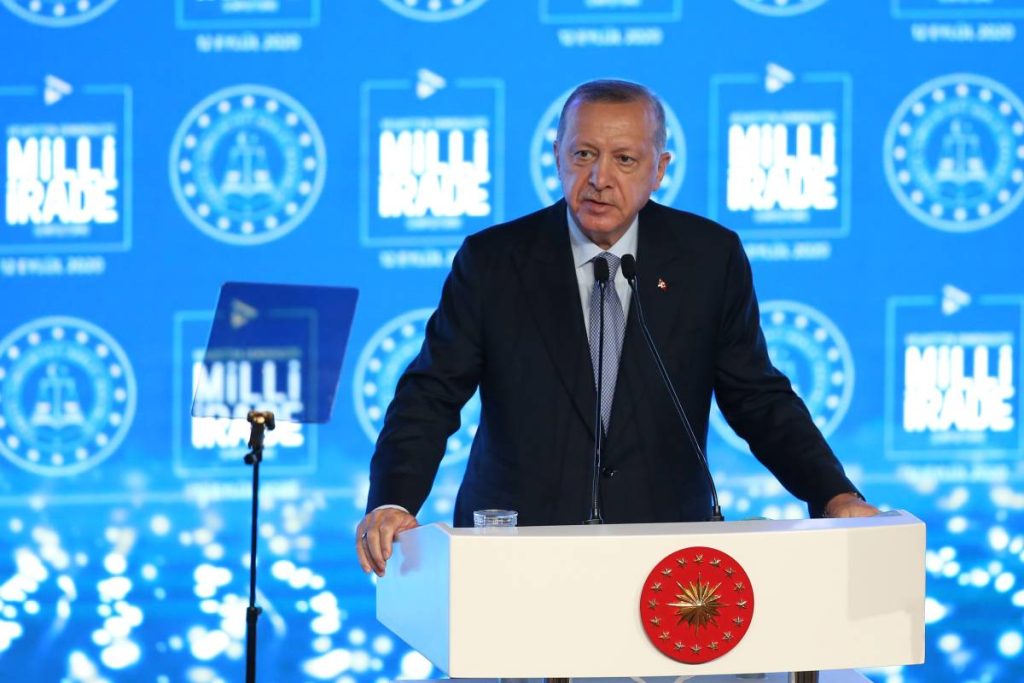
ABHISH K. BOSE: According to the V – Dem institutes Democracy report 2022, the level of democracy enjoyed by the global citizens in the year 2021 is as low as that of the year 1989. The last 30 years of democratic advances are now reportedly undermined. 70 percentage of the global population are under dictatorships. This is most evident in Asia Pacific, Central Asia, Eastern Europe, parts of Latin America and the Caribbean. What are the reasons for this?
Prof Weyland: V-Dem rankings are based on scholars’ judgments, and because global standards of democracy have risen, these judgments can be too “critical” and exaggerate the degree of democratic backsliding that has occurred. Moreover, because many scholars are center-left or leftwing in political-ideological orientation, they tend to be harder on right-wing governments; a recent statistical investigation indeed demonstrates a significant ideological bias in V-Dem rankings. Because many large countries, such as India, Brazil, Turkey, and the US, in recent years have had governments headed by rightwing populists, this bias may well affect the numbers – 70% of the global population – that you mention in your question.
For instance, the downgrading of US democracy that V-Dem and other democracy-rating agencies have done since 2016 is, in my view, quite exaggerated: while Trump certainly did some damage, democratic institutions, civil society, the media, etc. survived his problematic (and chaotic) four years in government largely unscathed. Thus, as I argued in my answer to question 7 as well, I believe that the current state of global democracy is not nearly as dire as it is often depicted. Psychology shows that people pay disproportionate attention to negative news; and negative news also “sells” & spreads more than positive news. All these tendencies have darkened many people’s impressions more than is actually justified.
ABHISH K. BOSE: The report of the V – Dem also says that anti pluralist parties drive autocratization in 6 of the top 10 autocratizers (Brazil, Hungary, India, Poland, Zerbia and Turkey). Six out of twenty-seven European Union are now autocratizing. Three EU neighbours to the East as well. India’s name figures in the list of 6 autocratizers. Do you agree with this assessment?
Prof Wetland : The trends in those specific countries are indeed worrisome, and the political struggle over democracy is currently acute in India and Poland, whereas Hungary and Turkey have indeed descended into competitive authoritarianism, which since the failed military coup of 2016 has been quite repressive in Turkey. But also note the electoral defeat of Brazil’s Bolsonaro, which is given the country’s democracy a new lease on life.
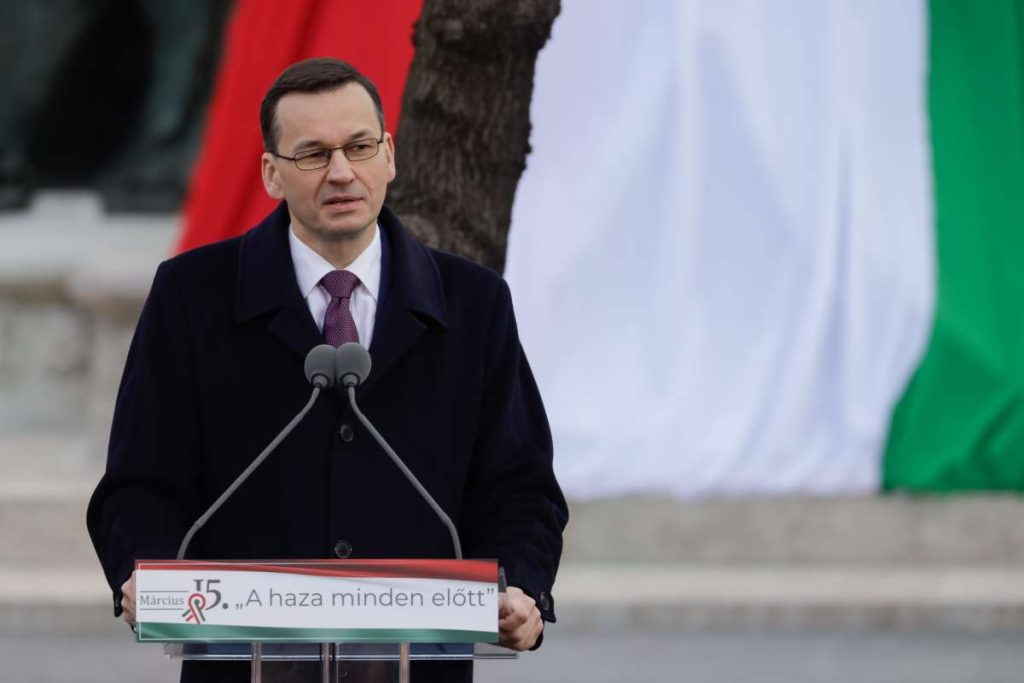
After all, populism is fairly haphazard as a political force; populist movements usually lack firm organization and are therefore precarious in their political sustenance. Consequently, they can fall as quickly as they rise, as I demonstrated in a March 2022 article in POLITICAL SCIENCE QUARTERLY. As a result, the election of populist leaders does by no means condemn a country to authoritarian rule; instead, many populist attempts to suffocate democracy have failed, as recently in Eastern Europe, especially the Czech Republic, Slovenia, and Slovakia. We tend to forget about these cases of populist failure, which often usher in the successful recovery of democracy.
ALSO READ: ‘Corporates Influence Governments’


